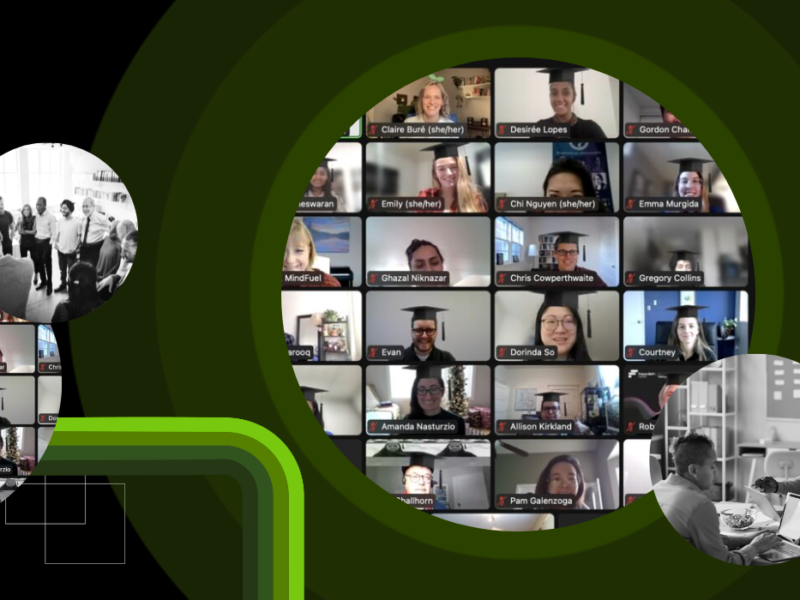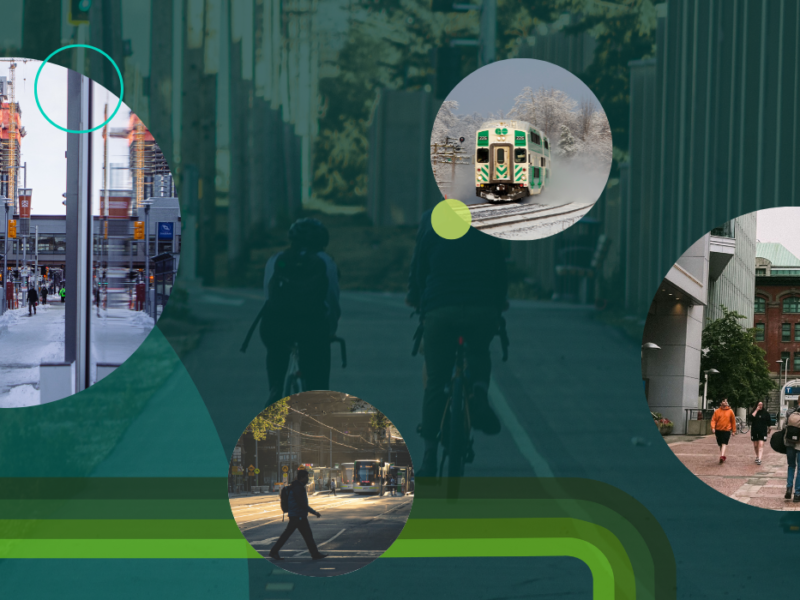Fostering breakthrough solutions in skills development

The Future Skills Centre (FSC) supports over 160 projects that reflect Canada’s geographic, demographic and sectoral diversity. Our leadership also recognized an opportunity to further increase the ambition and innovation potential of our efforts. Organizations driving breakthrough solutions in the skills development ecosystem do not always fit the criteria and cycles of our existing processes. If we want to help develop disruptive solutions, we must expand our ways of working and take further risks to better understand what works in skills development.
To that end, FSC started an Innovation Lab in 2020 to test and experiment with new approaches that foster innovations in skills development.The lab leverages the unique knowledge, resources, and relationships of FSC’s consortium members as well as the strong capabilities of the larger FSC network. It harnesses and coordinates these capabilities to “make innovation easier” for skills development in Canada and to nurture breakthrough solutions that ensure all Canadians have the skills needed to thrive in the future labour market. For each issue we address, the lab aims to engage a wide range of organizations, whether they are projects we’ve already funded or other stakeholders who have never interacted with us before.
One of our first initiatives was to develop a Technical Assistance program, which allows FSC-funded projects to receive guidance from experts and exchange ideas and lessons with their peers. As a result, project partners now receive personalized and tangible advice when they face challenges in areas such as digital technology and diversity and inclusion.
Innovation Lab supports projects testing new ideas
We now focus on helping project partners test and improve new ideas for skills development. To experiment with this approach, we conducted a series of rapid workshops last summer, gathering a diverse range of participants — academics, policymakers, nonprofit organizations and innovation experts — and led them through a series of exercises to generate radical ideas for skills development.
One pair of workshops focused on the issue of long-term unemployment. Others focused on persons with disabilities and invited FSC-funded organizations to develop an emerging idea and proposal they had. We collaborated with the MaRS Discovery District on the events, which led participants through exercises to analyze the deeper causes of problems, consider extreme or exaggerated versions of their ideas, and enhance or build on the ideas of others.
Although these workshops focused on generating radical ideas, the most helpful outputs were lessons learned about obstacles to innovation. Some common barriers were a lack of funding, time, leadership support and organizational willingness to take risks. Beyond that, some participants found it difficult to “think outside of the box” or work with unfamiliar innovation tools and methods.
Reflecting on the findings, we noted that the way “skill development organizations” are funded does not encourage innovation. Most grants emphasize immediate implementation and outputs such as the number of people trained. This approach doesn’t allow organizations to test and iterate on their proposals, leading to potential problems when unforeseen issues arise.
Learning will be shared
With these barriers in mind, the lab launched an Accelerator pilot in late 2021 to offer projects a low-stakes environment to test and refine innovative ideas prior to larger implementation. This pilot includes a cohort of six organizations and runs until May 2022. It provides funding and a specific mandate to validate and hone new skill solutions while reducing barriers. Importantly, the projects are accountable for generating learning and are not penalized if their proposed idea is found to be unfeasible.
A key Accelerator feature is support from advisors with deep expertise in innovation processes and tools who work closely with the projects to develop, test and validate their solutions. The learning will be shared widely to help other organizations pursuing similar initiatives and will inform how FSC can enable even more innovation among stakeholders in future.
We welcome input and comments from organizations with an interest in skills development or innovators of all stripes. We’re eager to hear about the challenges they face and the approaches and risks they took so we can exchange lessons and support each other.
In the months ahead, the Innovation Lab will experiment with different methods to generate breakthrough ideas and ambitious innovations. We will encourage highly-imaginative but untested concepts and provide a pathway for further development. The lab team is excited to see what we learn as we continue this journey.
If you are interested in the work we’re doing, please reach out to us – we love to connect with others working in this space, whether in Canada or around the world! We especially welcome fresh perspectives on how we can elevate our work and improve on our mission to make innovation easier for all skills development stakeholders.
Gordon Chan (gordon.chan@fsc-ccf.ca) is the Innovation Lab manager and Ramsha Naveed (ramsha.naveed@fsc-ccf.ca) is the Innovation Lab specialist at the Future Skills Centre.
The views, thoughts and opinions expressed here are the author’s own and do not necessarily reflect the viewpoint, official policy or position of the Future Skills Centre or any of its staff members or consortium partners.




